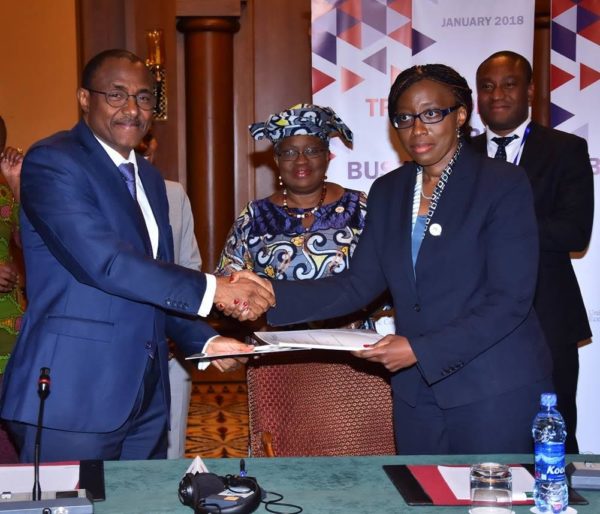Addis Ababa, the 30 January 2018 – The Pan African Risk Management Mutual (African Risk Capacity, ARC), a specialized agency of the African Union, and the United Nations Economic Commission for Africa (ECA) have announced a partnership that will allow the two organizations to combine their efforts to strengthen African States’ climate risk insurance coverage.
The multilateral agreement was announced at the African Union’s annual summit in Addis Ababa and commits the ARC and ECA to build the capacity of their common member states by integrating risk management investments into government planning. ARC and ECA will collaborate in the areas of economic and climate risk research to promote risk transfer instruments.
The UN estimates that Africa will see climate change adaptation costs reach 50 billion annually by 2050.
“This partnership marks a new phase of collaboration in the fight against the effects of climate change in Africa,” said Mr. Mohamed Beavogui, Director General of the ARC. The future of disaster risk management is an increasingly urgent economic issue, and ECA’s expertise will strengthen the work of the ARC at the service of its Member States as well as resilience on the continent.
During its four years of work, the CRA’s financial subsidiary (ARC Ltd) has contributed more than 34 million to member states affected by drought events. These resources have helped more than two million people affected by climate disasters.
“Climate change is one of the biggest threats to Africa’s economic and social development,” said ECA Executive Secretary Vera Songwe. “We believe that efforts like our partnership with the ARC will help African countries better protect themselves against these threats.
About the United Nations Economic Commission for Africa (UNECA)
ECA is a United Nations regional commission established by the United Nations Economic and Social Council (ECOSOC) in 1958. ECA’s mandate is to promote the economic and social development of its member states, promote intra-regional integration and promote international cooperation for Africa’s development. Consisting of 54 Member States and playing a dual role as a regional branch of the UN and as a key element of the African institutional landscape, ECA is well placed to make unique contributions to the development challenges of the continent.
The strength of ECA stems from its role as the only United Nations agency mandated to operate at regional and sub-regional levels to harness resources and engage them in Africa’s priorities.
To strengthen its impact, ECA places special emphasis on the collection of regional statistics so that its policies and advocacy are based on clear objectives; it also aims to promote a political consensus; to provide capacity development; and provide advisory services in key thematic areas.
About the Pan African Risk Management Mutual (African Risk Capacity, ARC)
The CRA Institution is composed of the ARC Secretariat and the ARC Insurance Company Limited (ARC Ltd). The Secretariat was established in 2012 as the specialized institution of the African Union to assist Member States in building their capacity to better plan, prepare and respond to extreme weather events. ARC Ltd is a mutual insurance company created in 2014 to provide risk transfer services to Member States through risk pooling and access to reinsurance markets. It is owned by Member States with active insurance policies, as well as by KfW Development Bank and the UK Department for International Development (DfID), as contributors of capital.
The ARC plays an important role in responding to country needs in times of crisis by providing timely access to funding for pre-approved rapid response plans developed in collaboration with governments. CRA funding complements other forms of local and international support.
The ARC model has proven effective so far and has paid 34 million dollars to four countries (Senegal, Niger, Mauritania and Malawi) affected by droughts. These resources have assisted more than two million people and about one million head of cattle.
The ARC uses its expertise to help address some of the biggest threats facing the continent, including droughts, epidemics, and tropical cyclones.



